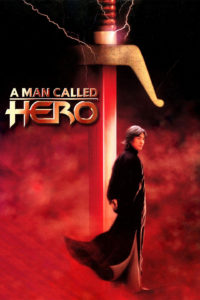
“A Man Called Hero” Theatrical Poster
Director: Andrew Lau
Cast: Ekin Cheng, Nic Tse, Kristy Yeung, Francis Ng, Shu Qi, Yuen Biao, Anthony Wong, Jerry Lamb, Elvis Tsui, Ken Lo, Jordan Chan, Mark Cheng, Cheng Pei Pei, Ronnie Cheung, Sam Lee, Frankie Ng, Jude Poyer, Grace Yip
Running Time: 102 min.
By Sergio Martorelli
Here’s a classic case of “the title says it all”. This is a story about a man. Said man is called (ta-daaa!) Hero! Hero Hua, to be precise. But is Hero a real hero, or a name is just a name? Well, it’s pretty possible, at least in movies adapted from a Ma Wing Ping comic book. When you look for the word “literal” on a chinese thesaurus, you’ll find a pic of Wing Ping. Remember The Storm Riders? The character named Conquer was a conqueror, Wind was pretty much windy, Charity was a nymphomaniac and so on. But I digress.
Once upon a time in 1914’s China, Hero (Ekin Cheng) is accepted as the disciple of martial arts master Pride (Anthony Wong). When he comes home to tell the news to his proud parents, he finds everybody slaughtered. Hero’s dad, a journalist, wrote a piece that pissed off the white opium traders, so they ordered the massacre – signed and all, very gangster-style. So it’s up to Hero to avenge his family. He tracks the boss (played by an uncredited Paul Fonoroff, or at least a guy that looks a lot like him) and beheads the mudda in front of witnesses, including the weasely Bigot (played by HK’s favourite heavie, Elvis Tsui Kam-Kong). That makes Hero a wanted man, so he flees to the USA leaving behind his gay brother Sheng (Jerry Lamb) and pregnant wife Jade (Kristy Yeung).
Cut to the present days (that’s 1930 to you), with Sheng and Hero’s son Sword (Nicholas Tse) arriving to USA in search of their long-lost bro and daddy. Now go grab some paper and pencil, and pay attention: from now on, the tale will be told thru a series of flashbacks. But don’t worry. Some critics complained that the episodic format was “too convoluted”. Not true. What makes things confusing is the fact that the main characters don’t age a day, never change their clothes and keep the exact same haircut over an interval of 16 years! Bigot, who appears in all phases of the story, wears basically the same outfit from 1914 to 1930. Sheng, another key character, gets to be thirty-something with the exact baby-face from the beginning! Only Hero shows signs of aging thru white highlights. But then, maybe he just came from a fancy hairdresser.
Moving on: while Sword searches for dad (and Sheng, for his former homo lover), the tale of the man called Hero is told by three different characters. Monk Luohan (Ken Lo) starts the saga recalling the days when he and Hero landed on Ellis Island, and were promptly sent to do slave labor on a coal mine. Turns out that the mine’s overseer is that dirty bastich Bigot. He recognizes Hero as the one who made his former China boss a foot shorter, so things start to get hairy. Again framed for murder (and this time it’s not clear if he really killed someone), Hero has to run and hide again. This time he’s aided by another pupil of Master Pride, Shadow (played by Deon Lam, voiced by Jordan Chan), an armless warrior who wears a mask and moves like The Flash on speed.
(BTW, this segment marks the return of fan fave Yuen Biao as the boss of the China Hotel. Hi there Yuen, nice to see you again! We know that you’re more interested in playing golf than making movies, but hey, we miss you big boy!)
Now it’s time for Sheng to tell the second part of the story, from the point when he and Jade, still preggers of Sword, came to NY to look for Hero. They find him, but the trio’s happiness is short-lived. Five japanese ninjas (played by chinese actors) also arrive in New York in order to track and kill the two remaining disciples of Master Pride. This part recalls The Storm Raiders, also directed by Andrew Lau, and is pure eye candy. The super-ninjas wear Kato-like uniforms and have powers that grant ’em command over the earth, water and fire (the fire ninja is played Sam Lee Chan-Sam, who looks a lot like the live action version of Woody Woodpecker!). A CGI-filled fight ensues and the ninjas have their asses whooped by Hero and Shadow. But that’s not the end. One of the ninjas is Mu (Shu Qi, this time on a serious and somber role). Mu gets the hots for Hero, who’s faithful to Jade. The ninja leader Jin (Mark Cheng) wants to marry Mu, but she’s not interested. Jin gets all riled up and does a bad deed that will change Hero’s life once again. Oh yeah, Sword is born along with a twin sister, who’s promptly forgotten by the screenwriters.
After seeing all sort of bad things happening to the ones he loved, Hero finds out that his karma is ruled by a death star (not THE Death StarT; just a generic death star of the astronomical kind), and is doomed to spend the rest of his days alone. Very sad, indeed. To hammer the point home, the sky gets dark and black stormy clouds appear at the exact moment Hero get this piece of information. How subtle.
Back to 1930, a.k.a. the present day. Sword and Sheng find Shadow and his daughter Kate (Grace Yip on a minuscule role and dressed like a man). Shadow tells us the last part of the tale, involving an weird duel with Pride and last-minute villain Invincible (Francis Ng) throwing water at each other. That sounds stupid in writing but it’s exciting on the screen, trust me. Oh, and Master Pride gives Hero the Chinese Secret. I have no idea of what the Chinese Secret is, but it must be something important cause they spent a lot on special effects in that sequence. AT LAST Sword and Hero meet (it’s a sad moment) and, to put the icing on the cake, Invincible faces Hero during a final duel atop a CGI Statue of Liberty. This moment is pure live-action Dragon Ball, and when Invincible breaks his sword and opens his arms. man alive!!! His pose alone is enough to take anime geeks into Otaku Nirvana!
I liked this movie better than Storm Riders, but the story leaves a lot of loose ends. The fate of Sword’s sister, for example. She’s kidnapped by Bigot seconds after her birth, and the only way to know what the heck happened to her is to bully Andrew Lau into making AMCH 2. The DVD? Aye. The brazilian edition by China Video crams Universe’s widescreen transfer and Yeon Sang’s fullscreen version on the same side. There’s also the making of and some trailers, making this one a pretty crowded disc. And that’s a problem. The high compression rate cause some visible pixelation during the action-oriented scenes, and this sucks. Who needs a fullscreen version anyway? Oh yeah, Joe “me no like them black bars” Public. Stupid Joe “black bars cut image yes they do” Public. Because of things like that, sometimes I miss the days when DVDs were made for the richer elite, and Joe Public had no say about movie formats. Heck, anyone who prefers fullscreen over OAR is stupid, period!
Sergio Martorelli’s Rating: 7/10


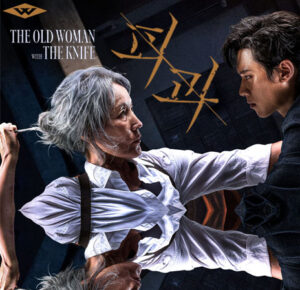
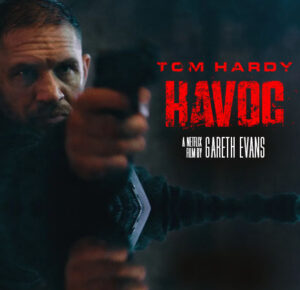
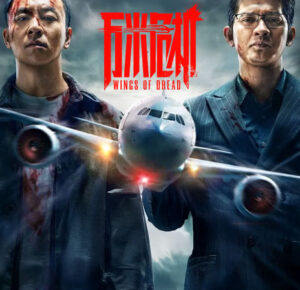







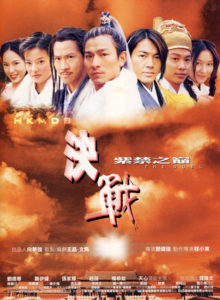

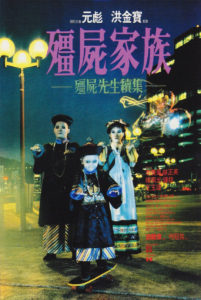
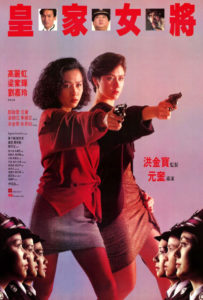






Be the 1st to Comment